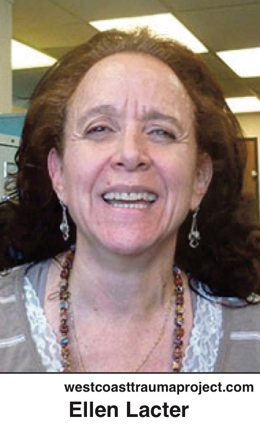Rascals case in brief
In the beginning, in 1989, more than 90 children at the Little Rascals Day Care Center in Edenton, North Carolina, accused a total of 20 adults with 429 instances of sexual abuse over a three-year period. It may have all begun with one parent’s complaint about punishment given her child.
Among the alleged perpetrators: the sheriff and mayor. But prosecutors would charge only Robin Byrum, Darlene Harris, Elizabeth “Betsy” Kelly, Robert “Bob” Kelly, Willard Scott Privott, Shelley Stone and Dawn Wilson – the Edenton 7.
Along with sodomy and beatings, allegations included a baby killed with a handgun, a child being hung upside down from a tree and being set on fire and countless other fantastic incidents involving spaceships, hot air balloons, pirate ships and trained sharks.
By the time prosecutors dropped the last charges in 1997, Little Rascals had become North Carolina’s longest and most costly criminal trial. Prosecutors kept defendants jailed in hopes at least one would turn against their supposed co-conspirators. Remarkably, none did. Another shameful record: Five defendants had to wait longer to face their accusers in court than anyone else in North Carolina history.
Between 1991 and 1997, Ofra Bikel produced three extraordinary episodes on the Little Rascals case for the PBS series “Frontline.” Although “Innocence Lost” did not deter prosecutors, it exposed their tactics and fostered nationwide skepticism and dismay.
With each passing year, the absurdity of the Little Rascals charges has become more obvious. But no admission of error has ever come from prosecutors, police, interviewers or parents. This site is devoted to the issues raised by this case.
On Facebook
Click for earlier Facebook posts archived on this site
Click to go to
Today’s random selection from the Little Rascals Day Care archives….
Click for earlier Facebook posts archived on this site
Click to go to
Today’s random selection from the Little Rascals Day Care archives….
Wikipedia stifles ‘ritual abuse’ disinformation campaign
 July 31, 2015
July 31, 2015
“Since February, 2008, on Wikipedia’s page on ‘Satanic Ritual Abuse,’ Wikipedia’s staff has been suppressing and deleting credible posts from credible sources (including my posts – I am a licensed California psychologist) that have documented substantial criminal and psychological evidence of criminal ritual abuse, and instead has completely discounted the existence of ritual abuse.
“As of July 27, 2009, Wikipedia’s page on ‘Satanic ritual abuse’ begins as follows: ‘Satanic ritual abuse (SRA, sometimes known as ritual abuse, ritualistic abuse, organised abuse, sadistic abuse and other variants) refers to a moral panic that originated in the United States in the 1980s, spreading throughout the country and eventually to many parts of the world, before subsiding in the late 1990s.’
“Wikipedia has now escalated its censorship of all information supporting the existence of ritual abuse by blacklisting four important websites about ritual abuse on July 18, 2009….”
– From a post by Ellen Lacter at her End Ritual Abuse website in which she recounts her repeated but unsuccessful attempts (cached) to budge Wikipedia editors from their stubborn rationality. (Holocaust deniers are similarly non grata.)
Supposed experts such as Lacter do still command an audience, however shrunken from the giddy days of the moral panic. This recent article quotes her as suggesting the motivation behind the Louisiana theater killings might have been “to gain power, transfer power, and strengthen and share in the power of Satan and demons…”
Parents saw nothing amiss until rumors took hold
 April 18, 2012
April 18, 2012
“One of the more surprising aspects of this (Little Rascals) case…. was that none of the parents… had observed anything that caused them to suspect their children were being abused or tortured during the period of the alleged abuses; there were no reports of unusual incidents from their children.
“Nor did the parents detect anything unusual when, without notice, they dropped in early to pick up their children from the day care (e.g., to take them to a doctor’s appointment).
“It was only after allegations began to grow that parents also began to remember events or behaviors consistent with their child being abused.”
– From “Jeopardy in the Courtroom: A Scientific Analysis of Children’s
Testimony” by Stephen J. Ceci and Maggie Bruck (1995)
Prosecutor Nancy Lamb gave the Charlotte Observer her response to “Jeopardy in the Courtroom”: “It’s unfortunate that these two people who have a good reputation – or at least Ceci did – have written this. It’s garbage.”
Letters claiming wrongful conviction couldn’t be true – could they?

linkedin.com
Benjamin Rachlin
Feb. 22, 2017
“[When Rich Rosen, Theresa Newman and Jim Coleman began planning the state’s first innocence project], not everyone agreed their work was worth doing. To many… colleagues, in North Carolina and across the country, the letters they were reading were no more than acts of desperation: There was zero chance these inmates were innocent, only that they had nothing to lose by filing paperwork. The American criminal-justice system had always trivialized its own chances at convicting anyone wrongly, feeling certain – as lawyer Christine Mumma no longer could – that protections at trial made that outcome impossible….”
– From “A Justice Startup” by Benjamin Rachlin in “Innocent: The Fight Against Wrongful Convictions,” a Time special edition
Rachlin’s piece is excerpted from “Ghost of the Innocent Man: A True Story of Trial and Redemption,” to be published in August.
![]()
Alarmed ‘Frontline’ viewers turned to governor
 July 10, 2014
July 10, 2014
“Thank you for your letter expressing your concerns about the prosecution of the Little Rascals Day Care Center personnel in Chowan County. Although this matter is outside my jurisdiction as head of the executive branch, I appreciate your interest in the administration of justice in North Carolina….
“I would suggest that it might be appropriate to wait until after the trial when all the evidence has been heard before reaching conclusions about the correctness of actions taken by (District Attorney H.P. Williams) and the court.
“North Carolina has had a long history of evenhandedness in the administration of justice, and I am confident that the tradition continues to be in effect. Nonetheless, if you wish to express your concerns directly to the District Attorney, his address is…..”
– From Gov. Jim Martin’s response to PBS viewers appalled by the first installment of “Innocence Lost” (May 7, 1991)
Last week I found in the State Archives in Raleigh about a dozen letters beseeching Gov. Martin to look into the case. Although significantly less heated than those addressing the mayor of Edenton, the letters expressed alarm about the plight of the Edenton Seven:
“As a member of Amnesty International, I write letters to officials of foreign governments, many of them without democratic governments or traditions, urging them to look into the cases of people being unjustly treated…. (In Edenton) one fact cannot be ignored: Defendants have been held in jail without a trial for close to two years….”
– Laura J. Reid, New York City
“I was disturbed by the incredibly high bonds recommended by the District Attorney and allowed by the Judge…. I would hope that you will personally intervene to request judicial review of the bonds set….”
– Steven J. Edwards, Decatur, Ga.
“As a former teacher, I can assure you that children – especially young children – can easily be coaxed, cajoled or pressured into say just about anything an adult might wish them to say.”
– S.T. Reynolds, Woodland, Calif.
I have asked Gov. Martin, now retired and living at Lake Norman, to discuss his views of the Little Rascals case both then and now. I’ll be posting his response soon.











0 CommentsComment on Facebook